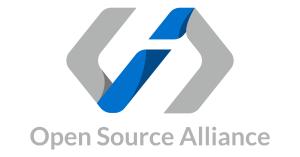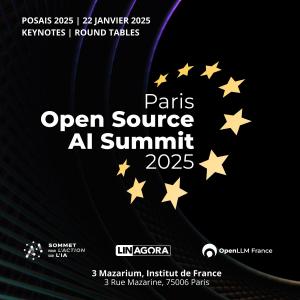
Open Weight Definition (OWD): Delivering Clarity while Protecting the Integrity of Open Source AI
A Complementary Framework That Strikes a Practical Balance Between Closed and Open Source AI, Accelerating Adoption while Protecting Open Source Principles
A Pragmatic Approach to Accelerate Adoption
Open Weight models bridge the gap between closed and Open Source models by allowing users to download and deploy advanced AI technologies independently without charge — regardless of who they are, or their fields of endeavour, and without having to ask for permission.
By not demanding access to the components required for the reproducibility expected of Open Source, the Open Weight Definition protects two of the four essential freedoms of Free Software: the ability to use and share, but not necessarily to study or modify a model. This lowers the barrier to entry, providing a level of flexibility and accessibility to vendors not yet able to satisfy the Open Source Definition covering all four.
Acknowledging Trade-Offs
While not guaranteed by the definition, users can still enjoy more limited opportunities to study and modify a model, for example by observing its outputs for given inputs, or by fine-tuning on new data respectively. They may however face challenges fully addressing ethical issues of fairness and bias inherent in the data, and would be unable to effectively add or fully remove data already processed during training, or to re-train or re-architect the model entirely. For many applications this is an acceptable compromise. Similarly, proprietary software is still used extensively today despite the large and growing Open Source industry underpinning modern society.
The Open Weight Definition clarifies these trade-offs by placing emphasis on clear labeling and responsible use, ensuring that users understand the limitations of these models and the freedoms they provide. This distinction is critical, as the terms "Open Source" and "Open Weight" have been used interchangeably despite their significant differences. Additionally, the term "Open Source" has been used to describe closed models under proprietary licenses that share limited data, or none. By introducing this definition, models distributed without reproduction essentials including training data can be described appropriately, bringing clarity to the AI ecosystem.
Quotes
"Open Weight models are indispensable tools for open innovation, allowing anyone to download and deploy cutting-edge AI models independently," said Sam Johnston, Convenor of the Open Source Alliance. "We opted to base the draft Open Weight Definition on the tried and tested Open Source Definition because it addresses vendors who aspire to label their products as Open Source but are not yet willing or able to deliver the data — and for AI, the data is the source."
Encouraging Collaboration and Feedback
The draft Open Weight Definition is now open for public consultation at openweight.org. Additionally, collaboration is welcomed at the linked GitHub repository. Stakeholders and experts across the Open Source AI community are encouraged to contribute feedback, with the final version set to be revealed along with the launch of the Open Source Alliance (OSA) itself at the AI Action Summit on February 10–11, 2025, in Paris.
About the Open Source Alliance
The Open Source Alliance (OSA) is an official AI Convergence Challenge under the Global AI Governance priority theme at the AI Action Summit to be held in Paris on 10-11 February 2025. The aim of this track is to shape an effective and inclusive framework of international governance for Al, building on the work conducted within the United Nations and on existing initiatives like the Global Partnership on Artificial Intelligence.
Dedicated to preserving the enduring relevance of Open Source in the data-driven era, the Open Source Alliance works to uphold the principles of freedom to use, study, modify, and share code and data. By ushering in an era of global governance, aligning with national languages and laws, and addressing modern technological needs, the Open Source Alliance ensures Open Source remains a driver of innovation and enabler of digital sovereignty.
Accepting Nominations for National Standard-Bearers
As part of its commitment to fostering international collaboration, the Open Source Alliance (OSA) is inviting nominations for national standard-bearers. These individuals and organisations will play a critical role in championing the values of Open Source within their local contexts. Responsibilities include advocating for the integrity of Open Source principles, ensuring alignment with national languages and legal frameworks, and participating actively in the process of evolving Open Source policies to address modern technological challenges.
Nominations are open to a broad range of candidates, including individuals, organisations, communities, and government departments. By fostering a global network of standard-bearers, the OSA aims to strengthen the Open Source ecosystem, safeguard digital sovereignty, and extend the Open Source Definition (OSD) to effectively address data-driven applications, including AI.
Interested parties can submit their nominations through the OSA website. Late nominations will close at midnight on 31 January 2025, in local time zones. The OSA will contact shortlisted candidates to discuss their potential participation, revealing selected representatives at the AI Action Summit in Paris.
For further details on the nomination process, visit the Open Source Alliance’s website at opensourcealliance.org, and review the draft at openweight.org
Sam Johnston
Open Source Alliance (OSA)
+1 888-707-6736
email us here
Visit us on social media:
Facebook
X
LinkedIn
Instagram
Distribution channels: Business & Economy, IT Industry, International Organizations, Technology, World & Regional
Legal Disclaimer:
EIN Presswire provides this news content "as is" without warranty of any kind. We do not accept any responsibility or liability for the accuracy, content, images, videos, licenses, completeness, legality, or reliability of the information contained in this article. If you have any complaints or copyright issues related to this article, kindly contact the author above.
Submit your press release


